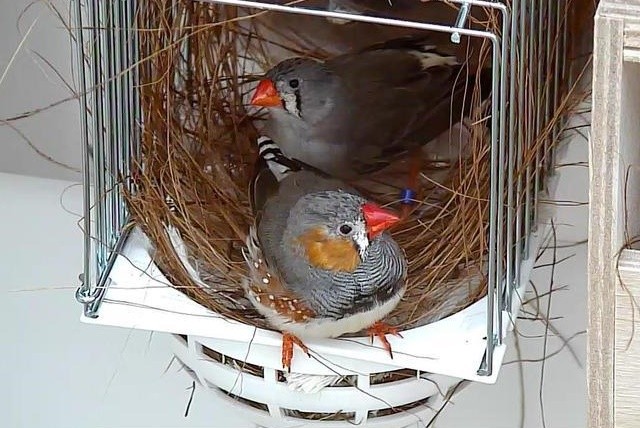A new study is suggesting how birds and humans both possess similar mating rituals such as how birds also choose a mate of their own choice and then falling in love, suggesting a romantic relationship between these feathered creatures.
The most successful relationships among birds including humans are not just about picking the strongest or most attractive mate but the pairings rely more on compatibility and attraction as well.
According to Malika Ihle from the Max Planck Institute for Ornithology, zebra finches often choose mates based on their behavioral compatibility where they cannot stay in a relationship when it is "forced" such as an arranged marriage between a man and a woman.
During the study, Ihle along with Bart Kempenaers and Wolfgang Forstmeier set up a mini "speed dating" session for the tiny birds where 20 females can freely choose among 20 males.
Researchers say that when the birds were paired off, the half were allowed to stay with their soul mates where the other half had went through an intervention. Scientists split up the couples and paired them with other broken hearted birds.
The bird couples were then left to breed in the aviaries whether they are happy or disgruntled with their mates as the scientists monitored their relationship activity.
Researchers were surprised to observe that zebra finch pairs from free mate choice had a 37 percent higher reproductive success compared to pairs that were forced upon each other.
Nests of those forced pairings had three times more unfertilized eggs that resulted in more buried or lost eggs and more chicks dying after hatching than those who are happily paired together.
However for the parents, when it comes to the forced pairings, males paid the same amount of attention to their mates as the happy pairings' males did but unfortunately, females in forced pairings were less receptive to their partner's advances where they copulated less often. When this happens, the males often strayed and had affairs, making the females more annoyed than ever.
The birds that were paired off with their own choice of mate showed various patterns that did not indicate any partner selection pattern. Similar to humans, the birds also possess idiosyncrasies in tastes when it comes to choosing mates meaning they choose qualities that are stimulating to them that are not necessarily obvious in physical terms.
This stimulation most likely increases the chances for females to copulate more successfully and encourages more paternal commitment when it comes to raising their young. This means that love and attraction can maximize the chances of raising more offspring and propagating their genetic lineage.
Scientists conclude that love and attraction play a crucial role in the evolution of lineages that are also fueled by the offsping's dependence of parental support. This new study is published in the journal, PLOS Biology.



























